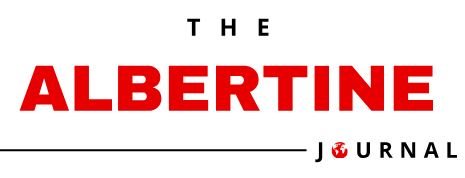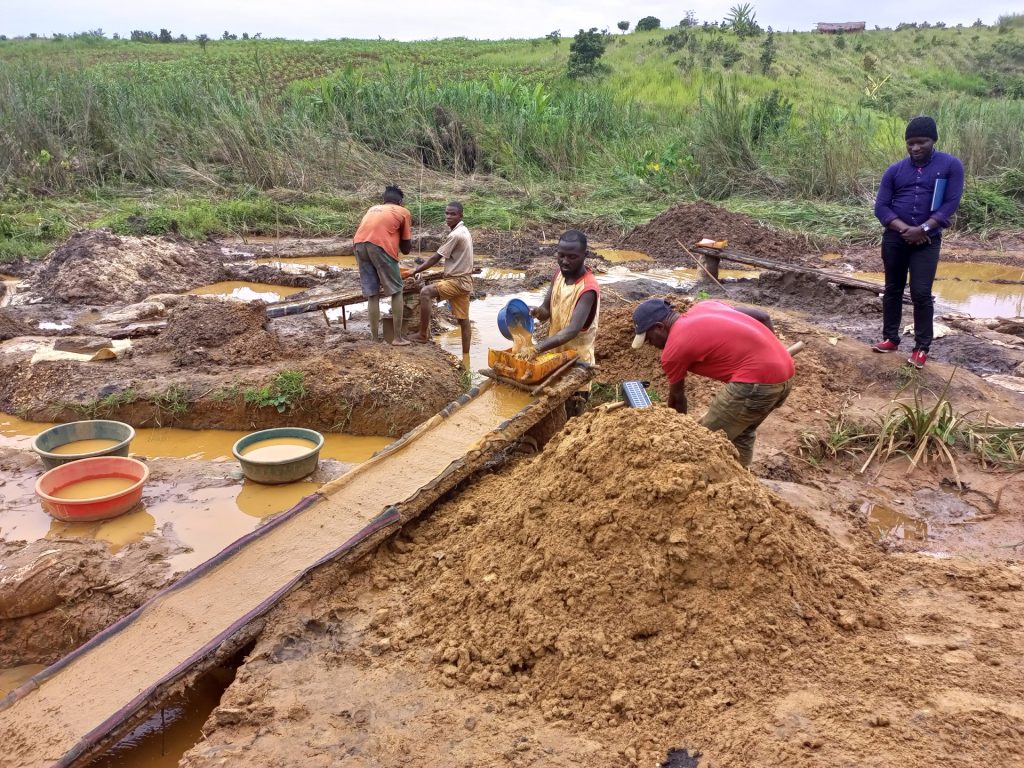Blessed with an array of minerals necessary for the global transition from fossil fuels to renewable energy and a tropical forest that is important for the absorption of greenhouse gases from the atmosphere, the Democratic Republic of the Congo (DRC) is faced with a conundrum.
To extract its exceptional array of rare mineral deposits quickly and on the cheap or to choose the slow but environmentally sustainable way of mining.
Traditionally, wise financial decision-makers will always choose first mover advantage, as money received now is usually better than ammounts made in the future.
For DRC, which hosts large deposits of good quality copper and cobalt, selling now might seem like a good idea, but that it means harming conservation efforts that are important for this delicate landscape.
DRC holds between 50-60 percent of the world’s cobalt reserves, a key component in lithium-ion batteries, which power most Electric Vehicles (EVs).
The DRC copper belt also includes some of the highest-grade copper deposits in the world, required four times more in EVs than for traditional cars.
Solar and wind energy projects need around six times more copper than fossil-based systems.
These same minerals are required to manufacture superalloys for aircraft engines and turbine blades, smartphones, and many other renewable energy innovations.
The skyrocketing demand for these vital minerals is tempting for the DRC government, the over 350 armed groups involved in illegal mineral extraction, and the global north and China businesses ready to cash in on the world’s transition from fossil fuels to renewable energy.
Environmental Defenders (ED), a non-profit organisation focused on conservation and human rights work in the Greater Virunga and Ituri landscapes in the DRC and the Murchison-Semliki terrain in Western Uganda, did research and found that mining intensifies corruption and human rights violations.
Among other things, ED, whose mission is to create a natural environment that is safe, healthy, and ecologically sustainable for both wildlife and people, found several challenges including the displacement of communities without compensation.
For communities that are still living off their land and earning some of the lowest incomes in the world, being chased without compensation is disempowering and drives large numbers into deeper poverty.
The instability and potential for insecurity also mean mining firms hire private guards who often rape women.
These mining firms also stand accused of polluting water sources with toxic chemical dumping and the use of mercury to clean gold despite it having health implications.
Mines in the DRC have also been connected to child labour, with Uni9ted Nations International Children’s Emergency Fund (UNICEF) confirming in its report of June last year that 361,000 Congolese children were engaged in the copper and cobalt mines.
People working in mines have poor health statuses, work under dangerous conditions, and are underpaid.
Exploitation is especially rampant in areas where artisanal mining takes place, as entrenched political and economic interests mean authorities take action against these vices.
In the Mambasa Territory of Ituri Province, Kolwezi in the Katanga region, and in Djungu Territory of Ituri where there is active extraction of the large coltan deposits, exploitation is also a problem.
Conservation efforts in DRC
Of the world’s three largest tropical rainforests, only the Congo has enough forests remaining as net carbon sinks, since the Southeast Asia and Amazon rainforests presently emit more carbon than they sequester.
Terra FM a subsidiary of ED, has stepped up efforts to equip the population with information to advocate for responsible extraction of critical minerals. The goal here is to conserve this critical rainforest.
ED also supports citizens learning to deal with land grabbing and forced evictions, to prevent mining firms’ attempts at taking more land for expansion.
Through a 10-month project titled: Defending and extending transparency and campaigning for new types of disclosure on transition, environmental, and social impact, Terra FM, has supported activists targeted for fighting human rights abuses, especially in communities facing forced land sales for mining, logging and agro-business.
Samuel Jaryekonga Warom, a Communications Director of Environmental Defenders in the Congo Basin says the programme was initiated in 2023 with Cultural Survival to use media and journalism as a tool to promote disclosure, transparency, and accountability of transitional minerals.
As part of ED’s conservation efforts, Terra FM produced, between August 01, 2023, and August 30, 2024, programming intended to ensure a just and sustainable transition to renewable energy in the context of Africa’s growing role in mining.
“We could not allow mining to come at the expense of vulnerable communities who must be protected by reducing environmental damage and biodiversity loss from the mining activities,” Warom added.
He said the project has since influenced policy changes at local and national levels, making sure mining regulations consider environmental protection that does not harm local people.
Subsequently, a DRC delegation comprised of Members of Parliament (MPs) on the Committee of Natural Resources, Environment, and Tourism, in May last year, visited the area following documentaries aired on Terra FM to see these complaints.
Warom says some MPs after the visit wrote to the DRC mining department requesting the cancellation of a mining permit issued to Kimia Mining, a Chinese Firm in Ituri Province.
Kimia Mining’s gold mine had been rapidly encroaching on Epulu Wildlife Reserve, an endangered World Heritage site.
Although the process is ongoing, it has caused debate and attention and the minister in charge of minerals will soon appear before the Parliamentary Committee on Natural Resources, Environment and Tourism to respond to concerns raised on the matter.
Warom says the achievement of the ED’s targets is aided by activities such as the eight-months of radio programming doing civic education.
The radio programming also includes magazines and debates on topics related to renewable energy transition minerals.
Previously mining used to go on with impunity and people did not know how to challenge the mining companies involved.
Warom says ED has since intervened positively. In widely spoken languages in areas such as Mahagi, Mambasa, and Irumu, Terra FM produced 35 programmes and two magazine programmes of 40 minutes each on topics such as health risks, environmental impacts of artisanal miners, child labor in cobalt, gold and copper mining.
Other programming covered violence, threats, and intimidation against human rights defenders and indigenous communities in mining areas, as well as armed conflict and environmental conservation.
Content produced by Terra FM was then disbursed to four other radio stations for indigenous communities in Katanga and Kolwez in DRC.
Estimates by media experts suggest that 1,000 indigenous people from the Greater Virunga and Ituri landscapes and in the DRC and the Murchison-Semliki terrain in Western Uganda were reached directly using radio.
The engagement dialogues reached out to 15,000 female members of the community contributing to the advancement of gender equality by facilitating access to information. Women also participated through radio programs, phone calls, and live contributions.
He adds that ED had targeted specific indigenous communities such as the Mbuti (Batwa), Efe, Aka, and Baka but later on, expanded to work with Alur, Bagungu, Lendu, Banyakibiro and Kebu, as well.
There was also a capacity-building initiative that equipped 30 activists, human rights defenders, and journalists, of which 13 were female journalists.
Warom said that during an in-house workshop, security consultants and experts from Environmental Defenders provided training in physical security protection, planning, digital security, and psychosocial support.
Experts, particularly journalists with experience covering conflicts, received post-trauma support and rehabilitation.
“We also increased the resilience of defenders to manage the risks they could face in their work,” he said.
ED held a two-day cross-regional learning exchange in Ituri, Kolwezi, and Katanga supporting defenders at risk of defamation by mining firms, encouraging their continued participation.
Training sessions in Mahagi covered topics such as risk assessment, helping defenders evaluate the risks associated with their work, given their high vulnerability.
Other training areas included organisational and network security, protecting computers from malware and hackers, safeguarding sensitive data, improving email security, social media use, and mobile phone security.
Twenty journalists and activists also benefited from training in open-source investigations and research methods for human rights defenders and investigative journalism.
Following the training, journalists are expected to produce four investigative articles on the environmental and human rights implications of mining in the DRC.
“The articles are a work in progress but require funding, which was inadequate. They will be produced, and we hope this will help us assess whether journalists who participated in the training will utilise their new skills in their work,” Warom added.
Source: Environmental Defenders https://watetezi.org/


